

Sliding mode controllers are long-recognized for their robustness features against plant uncertainties and unmodeled dynamics. Recently, the interest emerged to extensions of these algorithms to distributed parameter systems. Motivated by modern control applications, standard first- and second-order sliding mode control algorithms are presented in the infinite-dimensional setting and their attractive features are discussed for distributed and boundary control of PDEs. The backstepping method is additionally invoked for boundary stabilization of unstable coupled parabolic linear PDEs. A special attention is paid to the underactuated case of 2 coupled reaction-diffusion processes controlled by a scalar boundary input only.
 Yury Orlov received his M.S. degree from Mechanical-Mathematical Faculty of Lomonosov Moscow State University, in 1979, the Ph.D. degree
in physics and mathematics from the Institute of Control Sciences of RAN, Moscow, in 1984, and the Dr.Sc. degree also in physics and mathematics from Moscow Aviation Institute, in 1990. After graduation
from the University, he was with Institute of Control Sciences of Russian Academy of Sciences
from 1979 until his leave for Mexico. He is currently a Full Professor of the Electronics and Telecommunication Department, Scientific Research
and Advanced Studies Center of Ensenada, Mexico, since 1993 and possesses third level of SNI. During his scientific career he shared visiting/temporal professor positions in Moscow Aviation Institute, CESAME (Catholic University in Louvain,
Belgium), Ecole Central de Lille (France), Robotics Laboratory of Versalle University (France), INRIA (Grenoble, France), IRCCYN
(University of Nantes, France), University of Angers (France), University of Cagliary (Italy), and University of Kent (UK). His
research interests include mathematical methods in control, analysis and synthesis of nonlinear, nonsmooth, discontinuous, time-delay, distributed parameter systems, and control applications (particularly,
to electromechanical systems). He has authored over 180 referred journal and conference papers in the above areas as well as four research monographs.
Yury Orlov received his M.S. degree from Mechanical-Mathematical Faculty of Lomonosov Moscow State University, in 1979, the Ph.D. degree
in physics and mathematics from the Institute of Control Sciences of RAN, Moscow, in 1984, and the Dr.Sc. degree also in physics and mathematics from Moscow Aviation Institute, in 1990. After graduation
from the University, he was with Institute of Control Sciences of Russian Academy of Sciences
from 1979 until his leave for Mexico. He is currently a Full Professor of the Electronics and Telecommunication Department, Scientific Research
and Advanced Studies Center of Ensenada, Mexico, since 1993 and possesses third level of SNI. During his scientific career he shared visiting/temporal professor positions in Moscow Aviation Institute, CESAME (Catholic University in Louvain,
Belgium), Ecole Central de Lille (France), Robotics Laboratory of Versalle University (France), INRIA (Grenoble, France), IRCCYN
(University of Nantes, France), University of Angers (France), University of Cagliary (Italy), and University of Kent (UK). His
research interests include mathematical methods in control, analysis and synthesis of nonlinear, nonsmooth, discontinuous, time-delay, distributed parameter systems, and control applications (particularly,
to electromechanical systems). He has authored over 180 referred journal and conference papers in the above areas as well as four research monographs.
Se proporciona una introducción a la generación eléctrica mediante plantas basadas en diferentes tipos de reactores nucleares comerciales, así como estadísticas generales de operación. Se describe de manera general una central con reactor tipo BWR (Reactor de Agua en Ebullición), tal como Laguna Verde, y se presenta una introducción a la normativa y a los sistemas de instrumentación y control asociados a esta tecnología.
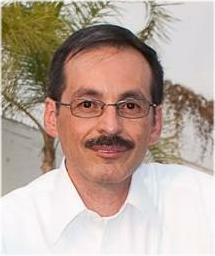 Miguel Ceceñas Falcón Ingeniero Físico Industrial egresado del Instituto Tecnológico y de Estudios Superiores de Monterrey en 1986, maestro en ciencias y doctor en Ingeniería Nuclear por la Universidad Estatal de Pensilvania en 1996 y 1999, respectivamente. Cubrió los créditos de maestría en Ingeniería Electrónica, opción Control, por el Centro Nacional de Investigación y Desarrollo Tecnológico. Ingresó al Departamento de Energía Nuclear del Instituto de Investigaciones Eléctricas en 1987, en la Coordinación de Tecnología de la Seguridad, A partir del año 2000 dirige al Grupo de Modelado de Procesos Nucleares de la Gerencia de Energía Nuclear, el cual ha apoyado a la operación de la Central Laguna Verde mediante un número de proyectos bajo contrato, principalmente en el área termohidráulica. También ha realizado proyectos de modelado de sistemas de transporte de hidrocarburos para PEMEX, y de transporte de vapor para el Campo Geotérmico de Cerro Prieto. Actualmente miembro activo de la Sociedad Nuclear Mexicana y de la American Nuclear Society. Fue candidato e Investigador del Sistema Nacional de Investigadores del 2001 al 2007.
Miguel Ceceñas Falcón Ingeniero Físico Industrial egresado del Instituto Tecnológico y de Estudios Superiores de Monterrey en 1986, maestro en ciencias y doctor en Ingeniería Nuclear por la Universidad Estatal de Pensilvania en 1996 y 1999, respectivamente. Cubrió los créditos de maestría en Ingeniería Electrónica, opción Control, por el Centro Nacional de Investigación y Desarrollo Tecnológico. Ingresó al Departamento de Energía Nuclear del Instituto de Investigaciones Eléctricas en 1987, en la Coordinación de Tecnología de la Seguridad, A partir del año 2000 dirige al Grupo de Modelado de Procesos Nucleares de la Gerencia de Energía Nuclear, el cual ha apoyado a la operación de la Central Laguna Verde mediante un número de proyectos bajo contrato, principalmente en el área termohidráulica. También ha realizado proyectos de modelado de sistemas de transporte de hidrocarburos para PEMEX, y de transporte de vapor para el Campo Geotérmico de Cerro Prieto. Actualmente miembro activo de la Sociedad Nuclear Mexicana y de la American Nuclear Society. Fue candidato e Investigador del Sistema Nacional de Investigadores del 2001 al 2007.
La transformacion de la industria automotriz asi como los avances tecnologicos han permitiido que nuevos desarrollos e innovaciones sean integrados en los vehiculos de combustion interna. Sin embargo, debido a los nuevos criterios de seguridad, confort y multimedia, asi como ambientales han permitido el desarrollo de nuevas formas de transsporte personalizado y colectivo: los vehiculos electricos. En esta platica se presentan los principales sistemas de seguridad como de confort que han sido utilizados en estos vehiculos. Los sistemas de traccion, asi como la direccion asistida entre otros seran presentados y analizados desde el punto de vista del control. Finalmente, las nuevas tendencias en los vehiculos electricos , en particular en el control de motores.
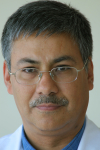 Jesús de León Morales Licenciatura en Física en la Facultad de Ciencias Físico-Matemáticas de la Universidad Autónoma de Nuevo León desde 1981, Cuenta con la Maestría en Control Automático del Centro de Investigaciones y de Estudios Avanzados en 1987. Cursó el doctorado en Control Automático de Procesos en la Universidad Claude Bernard Lyon I, en Francia en 1992. Reconocido por el Sistema Nacional de Investigadores, Nivel II. Sus áreas de interés son: el control de sistemas electromagnéticos, de procesos industriales y la robótica. Actualmente es profesor-investigador de la Facultad de Ingeniería Mecánica y Eléctrica de la Universidad Autónoma de Nuevo León.
Jesús de León Morales Licenciatura en Física en la Facultad de Ciencias Físico-Matemáticas de la Universidad Autónoma de Nuevo León desde 1981, Cuenta con la Maestría en Control Automático del Centro de Investigaciones y de Estudios Avanzados en 1987. Cursó el doctorado en Control Automático de Procesos en la Universidad Claude Bernard Lyon I, en Francia en 1992. Reconocido por el Sistema Nacional de Investigadores, Nivel II. Sus áreas de interés son: el control de sistemas electromagnéticos, de procesos industriales y la robótica. Actualmente es profesor-investigador de la Facultad de Ingeniería Mecánica y Eléctrica de la Universidad Autónoma de Nuevo León.
Consensus pertains to the case in which a network of systems synchronise their behaviour and reach a common behaviour. In the case of heterogeneous networks, in which systems may have different parameters and even different dynamics, the consensus problem must be addressed through a general framework which takes into account the type of interconnection, the individual agents' dynamics, the network topology and the strength of the interconnection. Motivated by synchronization paradigms appearing in the realm of neurosciences, we present a general framework of analysis of heterogeneous networks of dynamical systems with nontrivial dynamics. The framework build upon the essential observation that the network behaviour may be decomposed in two parts: on one hand, we exhibit the existence of what we call {emergent dynamics} and, on the other, the synchronisation-erros dynamics. These form two dynamical systems whose trajectories evolve in orthogonal spaces. Then, we use stability theory to study the behaviour of each system: under the assumption that the emergent dynamics has a stable attractor we show that problem of analysis of the network behaviour may be formulated as a dual problem of stability of such attractor and the stability of a synchronisation manifold. As illustration, we broach particular cases of Stuart-Landau oscillators and networks of Hindmarsh-Rose neurons. The talk is wrapped up with a brief discussion of open problems on synchronisation of heterogeneous networks in various areas, including social networks, neurosciences, electricity-distribution networks.
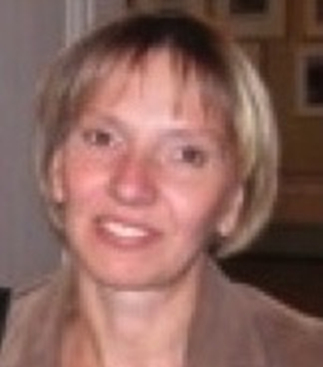 Elena Panteley Elena Panteley (M.Sc. ’86, Ph.D. ’97) is an associate researcher of the French National Center of Scientific Research (CNRS), Laboratoire de Signaux et Systemes, France. She received her M.Sc. and Ph.D. degrees in applied mathematics from the State University of St. Petersburg, St. Petersburg, Russia. From 1986 to 1998, she held a research position with the Institute for Problem of Mechanical Engineering, Russian Academy of Science, St. Petersburg. Her research interests include stability and control of nonlinear dynamical systems, network systems with applications to electro-mechanical and neuronal systems.
Elena Panteley Elena Panteley (M.Sc. ’86, Ph.D. ’97) is an associate researcher of the French National Center of Scientific Research (CNRS), Laboratoire de Signaux et Systemes, France. She received her M.Sc. and Ph.D. degrees in applied mathematics from the State University of St. Petersburg, St. Petersburg, Russia. From 1986 to 1998, she held a research position with the Institute for Problem of Mechanical Engineering, Russian Academy of Science, St. Petersburg. Her research interests include stability and control of nonlinear dynamical systems, network systems with applications to electro-mechanical and neuronal systems.
we will present recent researches on event-based continuous control. This type of control consist in updating the control only « when needed » instead of periodically as usual. Despite some drawbacks, event-based control seems to be very advantageous in terms of computation and network cost. The birth and the main ideas for this type of approach will be given and practical physical applications where this type of approach seems to be promising will presented.
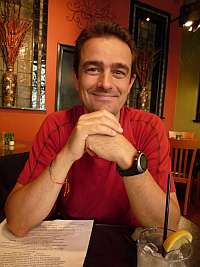 Nicolas Marchand N. Marchand was born in Suresnes, France. He graduated in Electrotechnical and Control Engineering from the Grenoble Institute of Technology (Grenoble INP), France (1995) and received a Ph.D. in Nonlinear Control (2000) at Grenoble INP. After one year at the University of Lyon, France, he held for two years an Assistant Professor position at the University of Paris XI in Gif-sur-Yvette, France. He then reached the CNRS at the GIPSA laboratory, Grenoble, France where he holds a senior researcher position. He his currently the leader of the Control Systems Department and deputy director of GIPSA-lab. His research interests are on modeling and control for computer and robotic systems, especially micro unmanned aerial vehicles (MAVs). He his the author of more than one hundred international scientific communications, journal papers or book chapters.
Nicolas Marchand N. Marchand was born in Suresnes, France. He graduated in Electrotechnical and Control Engineering from the Grenoble Institute of Technology (Grenoble INP), France (1995) and received a Ph.D. in Nonlinear Control (2000) at Grenoble INP. After one year at the University of Lyon, France, he held for two years an Assistant Professor position at the University of Paris XI in Gif-sur-Yvette, France. He then reached the CNRS at the GIPSA laboratory, Grenoble, France where he holds a senior researcher position. He his currently the leader of the Control Systems Department and deputy director of GIPSA-lab. His research interests are on modeling and control for computer and robotic systems, especially micro unmanned aerial vehicles (MAVs). He his the author of more than one hundred international scientific communications, journal papers or book chapters.
The aim of this talk is to present the application of the control theory to the stochastic differential equations. This class of the systems are described by Itô stochastic differential equations whose diffusion is controlled by noises which are multiplied with the state vector or with a function of the state vector. These noises are Wiener processes, also know as Brownian motions. In this talk, the following items are treated : Itô process and Itô formula, existence and uniqueness for the solution of a stochastic differential equation, stability notions for stochastic processes (with Lyapunov approach), differential-algebraic equations, time-delays.
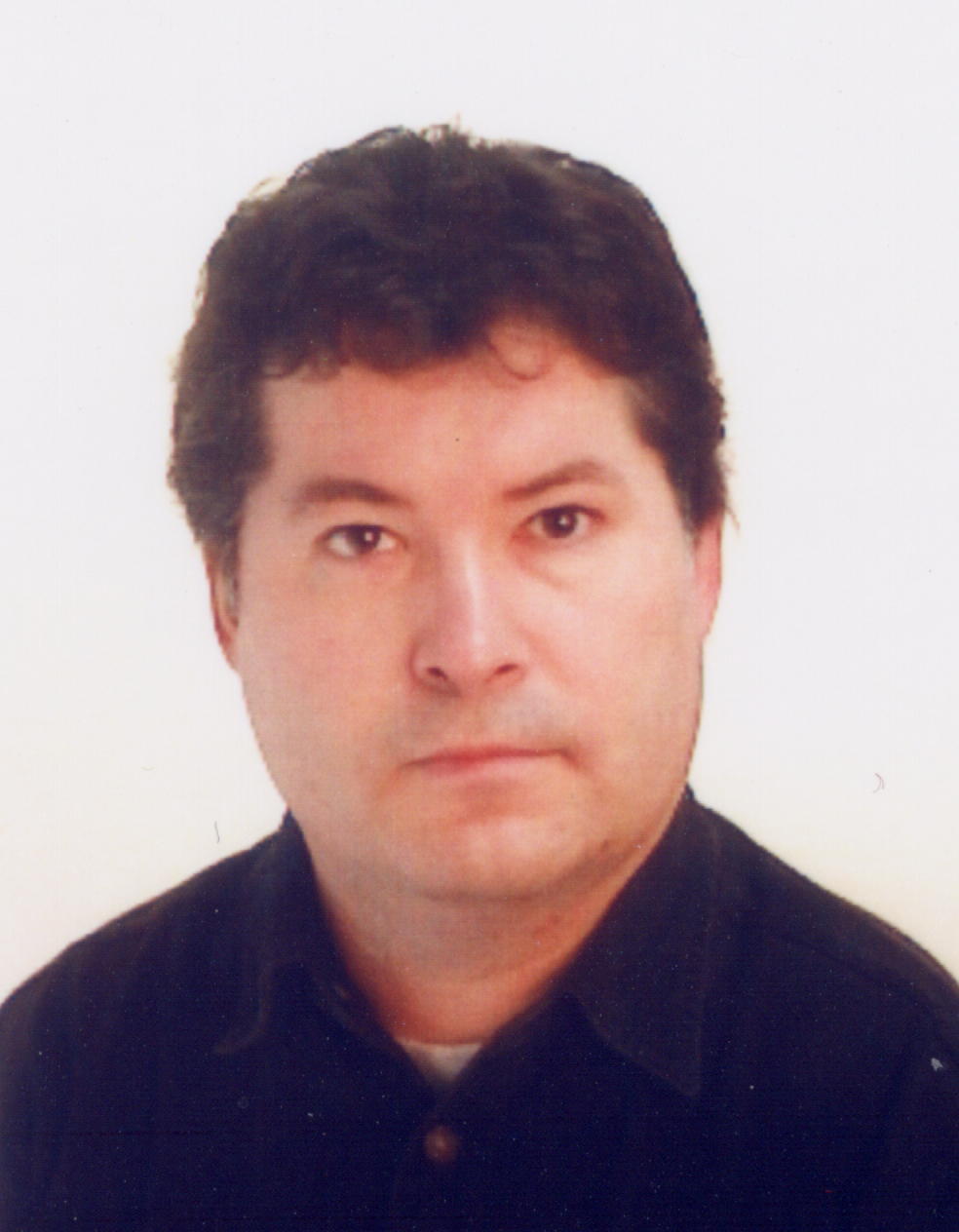 Michel Zasadzinski received his PhD degree in Automatic Control from the Université Henri Poincaré Nancy I, France, in 1990. He was Assistant Professor at the Université Henri Poincaré and, from 1992 to 2000, he has been a CNRS Researcher in the Centre de Recherche en Automatique de Nancy (CRAN, CNRS, UMR 7039). Michel Zasadzinski is now Professor at the Université de Lorraine (former Université Henri Poincaré Nancy I). His research interests encompass the theory and application of robust control and filtering for nonlinear systems and for stochastic differential equations.
Michel Zasadzinski received his PhD degree in Automatic Control from the Université Henri Poincaré Nancy I, France, in 1990. He was Assistant Professor at the Université Henri Poincaré and, from 1992 to 2000, he has been a CNRS Researcher in the Centre de Recherche en Automatique de Nancy (CRAN, CNRS, UMR 7039). Michel Zasadzinski is now Professor at the Université de Lorraine (former Université Henri Poincaré Nancy I). His research interests encompass the theory and application of robust control and filtering for nonlinear systems and for stochastic differential equations.